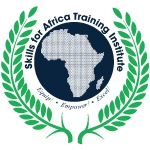|
|
Personal Protective Equipment (PPE) Standards and Best Practices
USD 1,500 |
Venue: Nairobi
Personal Protective Equipment (PPE) Standards and Best Practices training equips professionals with the methodologies to ensure proper selection, use, and maintenance of PPE, enhancing workplace safety and minimizing injury risks. This course focuses on analyzing hazard assessments, implementing PPE standards, and understanding the impact of effective PPE programs on worker protection. Participants will learn to conduct PPE assessments, develop PPE training programs, and understand the intricacies of PPE inspection and maintenance. By mastering PPE standards and best practices, professionals can enhance worker safety, reduce occupational injuries, and contribute to the creation of a secure and compliant work environment.
The proper use of PPE is critical in mitigating workplace hazards and ensuring worker safety. This course delves into the nuances of PPE selection, fitting, and compliance, empowering participants to develop and implement tailored PPE programs. By integrating regulatory requirements with practical safety techniques, this program enables individuals to lead initiatives that promote worker protection and prevent occupational injuries.
Target Audience:
- Safety managers
- Supervisors
- Team leaders
- HR professionals
- Compliance officers
- Industrial hygienists
- Construction workers
- Healthcare workers
- Laboratory technicians
- Individuals responsible for PPE programs
- Procurement specialists
- Training managers
Course Objectives:
- Understand the principles and importance of personal protective equipment (PPE) standards and best practices.
- Implement techniques for conducting hazard assessments and selecting appropriate PPE.
- Understand the role of regulatory standards and compliance in PPE programs.
- Implement techniques for developing and implementing PPE training programs.
- Understand the principles of proper PPE fitting, use, and maintenance.
- Implement techniques for conducting PPE inspections and audits.
- Understand the role of PPE in specific industries and applications.
- Implement techniques for managing PPE inventory and procurement.
- Understand the legal and ethical considerations related to PPE use.
- Implement techniques for evaluating and improving PPE programs.
- Understand the challenges and opportunities of implementing PPE programs in diverse workplaces.
- Understand the role of employee participation in PPE selection and usage.
- Develop strategies for continuous improvement in PPE management.
Duration: 5 Days
Course Content
Module 1: Foundations of PPE Standards
Principles and importance of personal protective equipment (PPE) standards and best practices.
Understanding the relationship between PPE and workplace safety.
Benefits of effective PPE programs.
Historical context and evolution of PPE standards.
Module 2: Hazard Assessments and PPE Selection
Techniques for conducting hazard assessments and selecting appropriate PPE.
Implementing risk assessments and hazard identification methods.
Utilizing PPE selection guides and standards.
Managing PPE selection.
Module 3: Regulatory Standards and Compliance
Role of regulatory standards and compliance in PPE programs.
Understanding OSHA standards and industry-specific regulations.
Implementing compliance strategies and documentation.
Managing regulatory compliance.
Module 4: PPE Training Programs
Techniques for developing and implementing PPE training programs.
Implementing training modules and content.
Utilizing training aids and resources.
Managing PPE training.
Module 5: PPE Fitting, Use, and Maintenance
Principles of proper PPE fitting, use, and maintenance.
Understanding fitting guidelines and user instructions.
Implementing maintenance and cleaning procedures.
Managing PPE maintenance.
Module 6: PPE Inspections and Audits
Techniques for conducting PPE inspections and audits.
Implementing inspection checklists and procedures.
Utilizing audit tools and techniques.
Managing PPE inspections.
Module 7: Industry-Specific PPE Applications
Role of PPE in specific industries and applications.
Understanding PPE requirements for construction, healthcare, and laboratories.
Implementing industry-specific PPE protocols.
Managing industry-specific PPE.
Module 8: PPE Inventory and Procurement
Techniques for managing PPE inventory and procurement.
Implementing inventory control and tracking systems.
Utilizing procurement strategies and vendor management.
Managing PPE inventory.
Module 9: Legal and Ethical Considerations
Legal and ethical considerations related to PPE use.
Understanding liability and responsibility.
Implementing ethical guidelines and practices.
Managing legal and ethical compliance.
Module 10: PPE Program Evaluation and Improvement
Techniques for evaluating and improving PPE programs.
Implementing program evaluation metrics and feedback mechanisms.
Utilizing data analysis and reporting.
Managing program evaluations.
Training Approach
This course will be delivered by our skilled trainers who have vast knowledge and experience as expert professionals in the fields. The course is taught in English and through a mix of theory, practical activities, group discussion and case studies. Course manuals and additional training materials will be provided to the participants upon completion of the training.
Tailor-Made Course
This course can also be tailor-made to meet organization requirement.
Training Venue
The training will be held at our Skills for Africa Training Institute Training Centre. We also offer training for a group at requested location all over the world. The course fee covers the course tuition, training materials, two break refreshments, and buffet lunch.
Visa application, travel expenses, airport transfers, dinners, accommodation, insurance, and other personal expenses are catered by the participant
Certification
Participants will be issued with Skills for Africa Training Institute certificate upon completion of this course.
Airport Pickup and Accommodation
Airport pickup and accommodation is arranged upon request.
Terms of Payment: Unless otherwise agreed between the two parties’ payment of the course fee should be done 5 working days before commencement of the training.
Course Booking
Please use the “book now” or “inquire” buttons on this page to either book your space or make further enquiries.
| Nairobi | Jul 21 - 25 Jul, 2025 |
| USD 1,500.00 | (Nairobi) |
| USD 1,750.00 | (Mombasa) |
| USD 4,500.00 | (Dubai) |
| USD 3,500.00 | (Johannesburg) |
Nixon Kahuria +254 702 249449
Tags: |
Personal Protective Equipment PPE Standards Safety Compliance Hazard Protection Workplace Safety PPE Training Best Practices |



